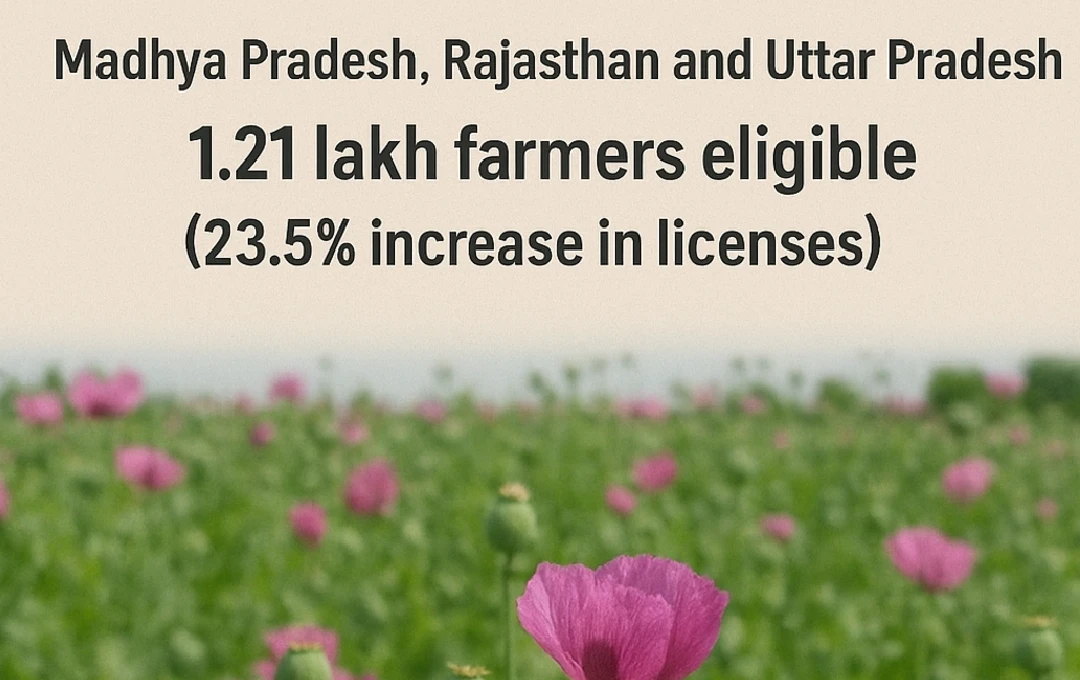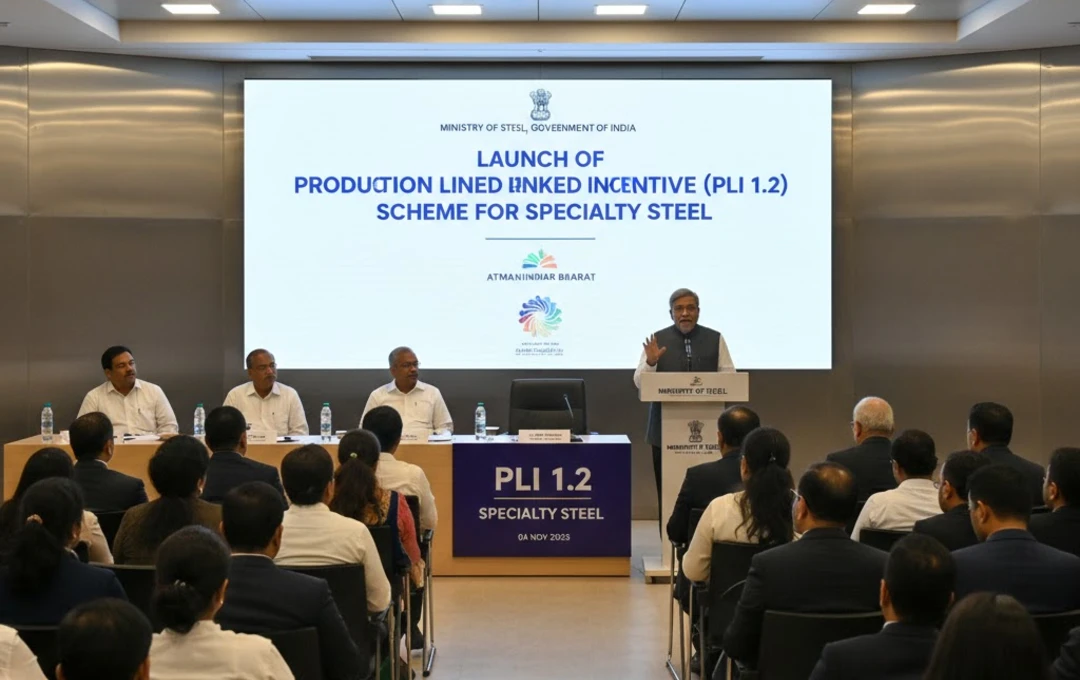Government Announces Annual Opium Poppy Licensing Policy 2025-26 for Madhya Pradesh, Rajasthan & Uttar Pradesh
Union Government's opium poppy licensing policy 2025-26 enables 1.21 lakh farmers, adds 15,000 new beneficiaries, boosts alkaloid self-reliance.

The Union Government has announced the Annual Licensing Policy for cultivation of opium poppy for the crop year 2025-26, covering farmers in Madhya Pradesh, Rajasthan, and Uttar Pradesh. The opium crop year runs from October 1, 2025 to September 30, 2026.
As per the policy, nearly 1.21 lakh farmers are eligible to receive cultivation licenses. This represents a 23.5% increase in licenses, with the inclusion of 15,000 additional farmers compared to the previous crop year. The move is aimed at ensuring both the livelihoods of farmers and the stable supply of alkaloids for medical and palliative care needs.
Key Features of the 2025-26 Opium Poppy Licensing Policy:
-
Retention of existing gum cultivators with average morphine yield (MQY-M) of 4.2 kg/hectare or above.
-
Farmers with morphine yield between 3.0-4.2 kg/hectare can now cultivate unlanced poppy straw under the Concentrate of Poppy Straw (CPS) method, valid for five years.
-
Digitized farmer data since 1995-96 allows marginal farmers who meet eligibility to access licenses.
-
Incentives for high-performing farmers (900 kg/hectare and above CPS yields) to shift to traditional gum cultivation, encouraging higher opium yields.
-
Suspension of licenses for CPS cultivators who did not achieve the MQY of 800 kg/hectare in 2024-25.
Strengthening Alkaloid Production & Atmanirbharta
The Government is upgrading capacities of its Opium and Alkaloid Factories, with Neemuch factory achieving WHO GMP certification. This aligns with India's Atmanirbhar Bharat vision while supporting pharmaceutical companies in alkaloid APIs and formulations. The initiative further supports the "Make for World" strategy by leveraging indigenous production capabilities and technical expertise.
This annual licensing policy balances farmer welfare, regulated opium cultivation, and India's commitment to global pharmaceutical supply chains.




